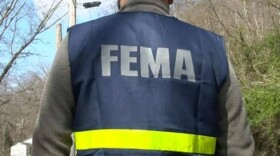A MARTÍNEZ, HOST:
Tanks will roll through Washington, D.C., this weekend as part of the country's first large military parade in over 30 years. It comes amid President Trump's controversial decision to deploy active-duty troops to Los Angeles. Now, to better understand the history and symbolism of military parades, we called up military expert Peter Feaver. He says parades are often used to mark battlefield victories.
PETER FEAVER: That was the case, say, after Desert Storm. That's probably the last time there was a parade of this magnitude in D.C.
MARTÍNEZ: How does the history of military parades in the U.S. stack up?
FEAVER: Well, the U.S. has tended not to go in for parades with equipment as much as people and horses (laughter). So the equipment, though, does get its displays at sporting events. So that's something that's distinctively American is the flyby of aircraft - combat aircraft - at major sporting events.
MARTÍNEZ: I got to admit, Peter, I've been to a few Super Bowls, and when the stealth bomber goes over the stadium, my blood goes cold. It's a chilling feeling, and it's an awesome feeling.
FEAVER: Exactly. And it's also a way of reminding Americans, who may be losing their connection to the military because they don't have family and loved ones serving, that the military is there and is working 24/7 to protect the country. If there's good that's going to come from this parade, it'll probably be that - reminding people about the military.
MARTÍNEZ: So how do the plans for Saturday's parades stack up with the United States' history of military parades, from what we understand of what's planned?
FEAVER: Well, this is going to be larger and boast more equipment than previous parades. It's going to look more like the Desert Storm parade than, say, the Memorial Day parades. And that's controversial. A parade like this was proposed in the first administration, and the president ultimately decided against it after hearing arguments against it from his secretary of defense - then-Secretary of Defense Jim Mattis.
MARTÍNEZ: What was the argument against having that kind of parade?
FEAVER: Well, the Desert Storm parade, which had a genuine catalyst - you know, they had just won a major battlefield victory in Desert Storm - was controversial, in part, for the cost. And then, somewhat for those, anyway, living in D.C., for the disruption and the damage to the streets. But also the sense that it was maybe over the top and militaristic, as opposed to acknowledging the bravery of the men and women who served. It seemed to be a little bit more evocative of, say, the May Day parades that the communist governments did during the Cold War or that the North Koreans still do.
MARTÍNEZ: What message do you think President Trump is trying to send by hosting this parade?
FEAVER: I think he's trying to underscore his message that he believes he's rebuilding American defense and that he is proud of the American military, and the Americans should be proud of American military, and our adversaries should fear it.
MARTÍNEZ: This part of our conversation taped before the protests against ICE raids in Los Angeles on Friday, so we called up Feaver once more.
FEAVER: The challenge of the parade all along has been how to celebrate the military's 250-year contribution to the Republic, while avoiding the politicization that comes from our current polarized partisan environment. And that challenge is considerably harder when some units are seen parading on, and at the same time, other units are seen policing a public protest. The juxtaposition makes it very challenging.
MARTÍNEZ: Peter Feaver is a political science professor at Duke University who has studied the military for decades.
(SOUNDBITE OF FLYING LOTUS' "CRUST") Transcript provided by NPR, Copyright NPR.
NPR transcripts are created on a rush deadline by an NPR contractor. This text may not be in its final form and may be updated or revised in the future. Accuracy and availability may vary. The authoritative record of NPR’s programming is the audio record.








